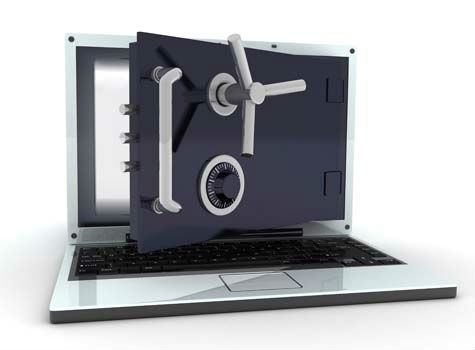
Korea is well-known as a broadband champion in the world. Up to now, definitely, we deserve to be called “lucky guys” at least in broadband access environment than in any other country. And for last couple of years, we have heard that we are to be going towards ubiquitous society – “Anytime, anyplace, anywhere” had been a catchphrase for our future vision. Then, is such a society Alice’s wonderland? Or Orwellian dystopia? Now, when our sensitive financial records might have been exposed to disqualified unknown eyes, we should ask this question more seriously. However, information/communication technology and its development/evolution would not necessarily exacerbate our living conditions. Rather, we have noticed, those developments have made our lives more full of innovative possibilities and new arrays of adventures. Therefore, our question should not be a Luddite type one, but how to build a more humane society in web of networks.
Recent incident of financial record leakage has clearly shown us how much our financial institutions are insensitive to their clients’ private information. All of us are not easily surprised at simple exposure of our personal information including registered residential number although this personal identification code is unique and permanent even to death, and so very sensitive as well as dangerous if it is exploited in bad faith. In that sense, we are all very courageous (?) at being naked to be identified to whomever. But financial record is much more sensitive one because it informs our level of credit, which is used for measuring our being as monetary value in credit society. Moreover, as we know, we are all debtors. Recent statistics says total sum of household debt is over one thousand trillion Korean won. In credit society, credit level is an important measure for legitimate or illegitimate discrimination. Therefore, the exposure of such sensitive information means the potential breakdown of credit society. Obviously, those financial institutions must have completely forgotten what they are working for.
But this is just one part of the whole story. Already financial customers’ personal information had been legally shared within a financial holding company. In Asian economic crisis time of late 1990s, founding financial holding company had been suggested as a solution responding the poor management problem of bank. And sharing clients’ personal information including credit records among affiliates of financial holding company had been proposed to be an incentive for founding holding company by financial authorities. This personal information sharing had been justified even for marketing purposes in making law concerned. That’s why those clients’ personal information without getting any credit card had also been exposed out at this incident. Without any consent, and without full perception of what happens in our financial record, our sensitive information and record had already been shared by financial dealers for their target marketing or credit investigation, ultimately financial discrimination.
Again, this is not so surprising. We are living in much more naked society than we have thought. We have heard a rumor that electronic residential identification card could be introduced. For last decade, this has been a hot topic in policy debates. But, we have missed out one important truth that much more intelligent identification card had already been adopted and used in our society. That’s mobile smart phone devices. Still, less than one fifth of mobile subscribers are using feature phone devices – 2nd generation mobile phone. Sooner or later, maybe within a couple of years, most mobile users would have smart phones – 3rd generation or LTE service mobile phone devices. It means that firstly in the world – is it proud truly? – Korea would become a pioneer of Orwellian 1984 vision because all Korean mobile devices directly could be identified with its owners’ or subscribers’.
Identified phone devices could show up where the identified person/subscriber is going or what is he/she is dong or what the guy is talking, and sometimes what those users are thinking and feeling. This threat comes true when we register our identification number in subscribing mobile communication services. Although most people do not know well, identification card number is not prerequisite for mobile communication service. It is being collected simply for ensuring recovery of claims in post-payment contract in a way that in the case of continuous three months payment delays, those subscriber’s identities are registered as bad debtors in credit institutions – in fact economic suicide. More surprisingly, in Korea, even in pre-payment contract for mobile communication service, people are required to register their identification card number although no more claims are required. This means that we are forced to make a deal of goods or services on the basis of secured identity rather than credit or monetary cash as usual in other societies. Isn’t it a perfect realization of Orwellian ideal? Quite opposite from our common sense, “unidentified phone device (Daepo-phone)” is neither illegal nor criminalized. In fact, most mobile phone devices in the world except our society are “unidentified” ones.
This communication user environment is not only threatening our private lives but also the freedom of anonymous expression because mobile device is not a tool just for voice communication but also for all kinds of interactive communication including writing, taking pictures or recording moments, and using SNSes. While so-called real name system (pre-registered writing mechanism) had been judged as unconstitutional due to its infringement of the freedom of anonymous speech, now the registered mobile communication system has still replaced it. But this kind of new challenges and threats have nothing to do with the essence of the evolving communication technology itself. Rather those practices, customs and institutions threatening our privacy and freedom of speech – basic human rights in information society – are being much more reinforced in the evolving communication technology.
It should be noted that fashionable trend of “Big Data” collection and analysis, which seems to be regarded as potentially significant engines for so-called “creative economy”, have been developed in the condition of anonymous communication environment in the advanced countries. It is because big data technology is essentially designed to be able to guess or to identify the behavior pattern of the observed subjects or ultimately who those subjects are, under the condition ensuring anonymous lives. On the contrary, our naked society, where we are accustomed to confirming school entrance year or birth year or identification numbers, doesn’t need such highly sophisticated technology or big data for the purpose of identifying who those subjects are. Only “small data” like registered residential number is enough for such a mission. Of course, in this environment, big data must contribute to complete naked society transparent for watching.
For last two decades, in our society, communication and information technology had been undertaken as a strong driving force for economic growth. But simultaneously, the technology has formed our living condition particularly for communication and expression. Network technology is challenging in our private lives and freedom of speech because digital footprint could be easily traced. Therefore, in evolving information and communication technology, if we hope to build up more humane society, our sensitivity for basic information human rights should be much more elevated. We are at cross roads where to go towards a human faced society or an Orwellian watching society. It depends on you!

By Chun Eung-hwi, Chairperson, OpenNet

